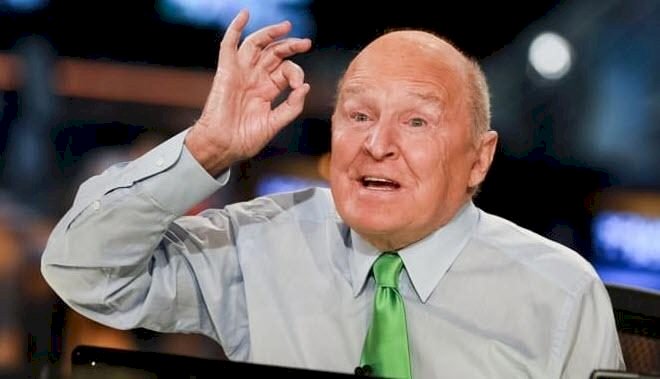Jack Welch, former GE CEO, is dead
Welch, GE plowed headfirst into financial services, creating one of the world's largest banks.

Jack Welch, who led General Electric through 20 years of its greatest financial success, has died. He was 84.
Welch became CEO of GE in 1981 and led it until his retirement in 2001.
"Today is a sad day for the entire GE family," GE CEO Larry Culp said in a statement. "Jack was larger than life and the heart of GE for half a century. He reshaped the face of our company and the business world. Jack was a strong and constant influence throughout my career despite never having worked directly for him."
Welch, who was named "Manager of the Century" by Fortune magazine in 1999, massively increased the scope and financial might of (GE) during his time at the top of the company. The market value of the stock rose from $14 billion to more than $400 billion, an increase of more than 2,700%, during those 20 years.
"He had a tremendous focus on shareholder value," said Jeff Sonnenfeld, a Yale business professor and founder and president of the Chief Executive Leadership Institute, who taught Welch in the early 1980s.
READ ALSO:
Forbes 2020 World's Richest: 4 Nigerians Make Exclusive Billionaires List, Dangote tops it
Sonnenfeld noted that Welch also pushed GE into new lines of businesses, with mixed results. For instance, Welch presided over GE's 1986 takeover of NBC-owner RCA. GE sold the business to Comcast (CMCSA) in 2013.
And under Welch, GE plowed headfirst into financial services, creating one of the world's largest banks. Yet GE Capital imploded during the 2008 financial crisis, nearly bringing the rest of GE with it.
"That provided a cookie jar. But it was a diversion that many European industrial giants didn't get distracted with," said Sonnenfeld.
Welch was also dubbed "Neutron Jack," as he became known for shedding both divisions and individual managers who he believed were not performing at a sufficient level. His first year as CEO in 1981, he sold close to 100 businesses, said Sonnenfeld.
The first thing he did was reverse what to that point had been the biggest acquisition in GE history, its $2 billion purchase of Utah International, Sonnenfeld said.

































